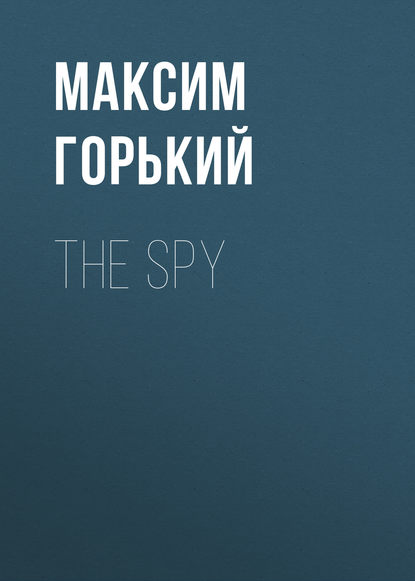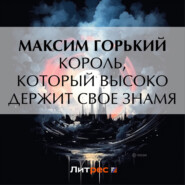По всем вопросам обращайтесь на: info@litportal.ru
(©) 2003-2024.
✖
The Spy
Настройки чтения
Размер шрифта
Высота строк
Поля
"Why do you make fun of me?"
The glazier boy looked at him.
"What of it?"
Yevsey was unable to reply.
"Do you want to fight?" asked Anatol again. "Come to our shed. I will wait for you until evening."
He spoke calmly and in a business-like way.
"No, I don't want to fight," replied Yevsey quietly.
"Then you needn't! I'd lick you anyway," said the glazier, and added with assurance, "I certainly would."
Yevsey sighed. He could not understand this boy, but he longed to understand him. So he asked a second time:
"I say, why do you make fun of me?"
Anatol apparently felt awkward. He winked his lively eyes, smiled, and suddenly shouted in anger:
"Go to the devil! What are you bothering me about? I'll give it to you so – "
Yevsey quickly ran into the shop, and for a whole day felt the itching of an undeserved insult. This did not put an end to his inclination for Anatol, but it forced him to leave the yard whenever Anatol noticed him, and he dismissed the glazier boy from the sphere of his dreams.
CHAPTER IV
Soon after this unsuccessful attempt to draw near to a human being Yevsey was one evening awakened by talking in his master's room. He listened and thought he distinguished Rayisa's voice. Desiring to convince himself of her presence there he rose and quietly slipped over to the tightly closed door, and put his eyes to the keyhole.
His sleepy glance first perceived the light of the candle, which blinded him. Then he saw the large rotund body of the woman on the black sofa. She lay face upward entirely naked. Her hair was spread over her breast, and her long fingers slowly weaved it into a braid. The light quivered on her fair body. Clean and bright, it seemed like a light cloud which rocked and breathed. It was very beautiful. She was saying something. Yevsey could not catch the words, but heard only the singing, tired, plaintive voice. The master was sitting in his nightgown upon a chair by the sofa, and was pouring wine into a glass with a trembling hand. The tuft of grey hair on his chin also trembled. He had removed his glasses, and his face was loathsome.
"Yes, yes, yes! Hm! What a woman you are!"
Yevsey moved away from the door, lay down on his bed, and thought:
"They have gotten married."
He pitied Rayisa Petrovna for having become the wife of a man who spoke ill of her, and he pitied her because it must have been very cold for her to lie naked on the leather sofa. An evil thought flashed through his mind, which confirmed the words of the old man about her, but Yevsey anxiously drove it away.
The evening of the next day Rayisa Petrovna brought in supper as always, and said in her usual voice:
"I am going."
The master, too, spoke to her in his usual voice, dry and careless.
Several days passed by. The relation between the master and Rayisa did not change, and Yevsey began to think he had seen the naked woman in a dream. He was very reluctant to believe his master's words about her.
Once his Uncle Piotr appeared unexpectedly and, so it seemed to Yevsey, needlessly. He had grown grey, wrinkled, and shorter.
"I am getting blind, Orphan," he said sipping tea from a saucer noisily and smiling with his wet eyes. "I cannot work anymore, so I will have to go begging. Yashka is unmanageable. He wants to go to the city, and if I don't let him, he will run away. That's the kind of a chap he is."
Everything the blacksmith said was wearisome and difficult to listen to. He seemed to have grown duller. He looked guilty, and Yevsey felt awkward and ashamed for him in the presence of his master. When he got ready to go, Yevsey quietly thrust three rubles into his hand, and saw him out with pleasure.
Though Yevsey endeavored as before to please his master in every way, he became afraid to agree with him. The bookshop after a time aroused a dim suspicion by its resemblance to a tomb tightly packed with dead books. They were all loose, chewed up, and sucked out, and emanated a mouldy, putrid odor. Few were sold; which did not surprise Yevsey. What stirred his curiosity was the attitude of the master to the purchasers and the books.
The old man would take a book in his hand, carefully turn over its musty pages, stroke the covers with his dark fingers, smile quietly, and nod his head. He seemed to fondle the book as though it were alive, to play with it as with a kitten or a puppy. While reading a book he carried on with it a quiet, querulous conversation, like Uncle Piotr with the furnace-fire. His lips moved in good-humored derision, his head kept nodding, and now and then he mumbled and laughed.
"So, so – yes – hmm – see – what's that? Ha, ha! Ah, the impudence – I understand, I understand – it'll never come about – no-o-o – ha, ha!"
These strange exclamations coming from the old man as if he were disputing with somebody both astonished and frightened Yevsey, and pointed to the secret duplicity in his master's life.
"You don't read books," said the master to him once. "That's good. Books are always lechery, the child of a prostituted mind. They deal with everything, they excite the imagination, and create useless agitation and disturbance. Formerly we used to have good historical books, stories of quiet people about the past. But now every book wants to inspire you with hostility to life and to lay bare man, who ought always to be covered up both in the flesh and in the spirit in order to defend him from the devil, from curiosity, and from the imagination, which destroys faith. It's only in old age that books do no harm to a man, when he is guarded against their violence by his experience."
Though Yevsey did not understand these talks he remembered them well, and though they met with no response in him, they confirmed his sense of mystery – the mystery that invested all human life, as it were, in a hostile envelope.
When he sold a book, the old man regarded it with regret, and fairly smelled the purchaser, with whom he talked in an extremely loud and rapid voice. Sometimes, however, he lowered his voice to a whisper, when his dark glasses would fix themselves upon the face of the customer. Often on seeing to the door a student who had bought a book, he followed him with a smile, and nodded his head queerly. Once he shook his finger at the back of a man who had just left, a short, handsome fellow with fine black tendrils on a pale face. The largest number of customers were students and people having a certain resemblance to them. Sometimes old men came. These rummaged long among the books, and haggled sharply over the prices.
An almost daily visitor was a man who wore a chimney-pot and on his right hand a large gold ring set with a stone. He had a broad pimply nose on a stout flat shaven face. When Dorimedont Lukin played chess with the master, he snuffled loud and tugged at his ear with his left hand. He often brought books and paper parcels, over which the master nodded his head approvingly and smiled quietly. He would then hide them in the table, or in a corner on a shelf in back of him. Yevsey did not see his master pay for these books, but he did see him sell them.
One of the students began to visit the shop more frequently than the others. He was a tall, blue-eyed young man with a carrot-colored mustache and a cap stuck back on his neck, leaving bare a large white forehead. He spoke in a thick voice, laughed aloud, and always bought many old journals.
Once the master pointed out a book to him that Dorimedont had brought; and while the student glanced through it, the old man told him something in a quick whisper.
"Interesting!" exclaimed the student, smiling amiably. "Ah, you old sinner, aren't you afraid, eh?"
The master sighed and answered:
"If you absolutely feel it's the truth, you ought to help it along in whatever little ways you can."
They whispered a long time. Finally the student said aloud:
"Well, then, agreed! Remember my address."
The old man took the address down on a piece of paper, and when Dorimedont came and asked, "Well, what's new, Matvey Matveyevich?" the master handed him the address, and said with a smile:
"There's the new thing."
"S-so – Nikodim Arkhangelsky," read Dorimedont. "That's business. We'll look up this Nikodim."
Sometime after, upon sitting down to play chess, he announced to the master:
"That Nikodim turned out to be a fish with plenty of roe. We found something of pretty nearly everything in his place."
"Return the books to me," said the master.
"Certainly," and Dorimedont snuffled.
The blue-eyed student never appeared again. The short young man with the black mustache also vanished after the master had given Dorimedont his address. All this was strange. It fed the boy's suspicions, and indicated some mystery and enigma.

















